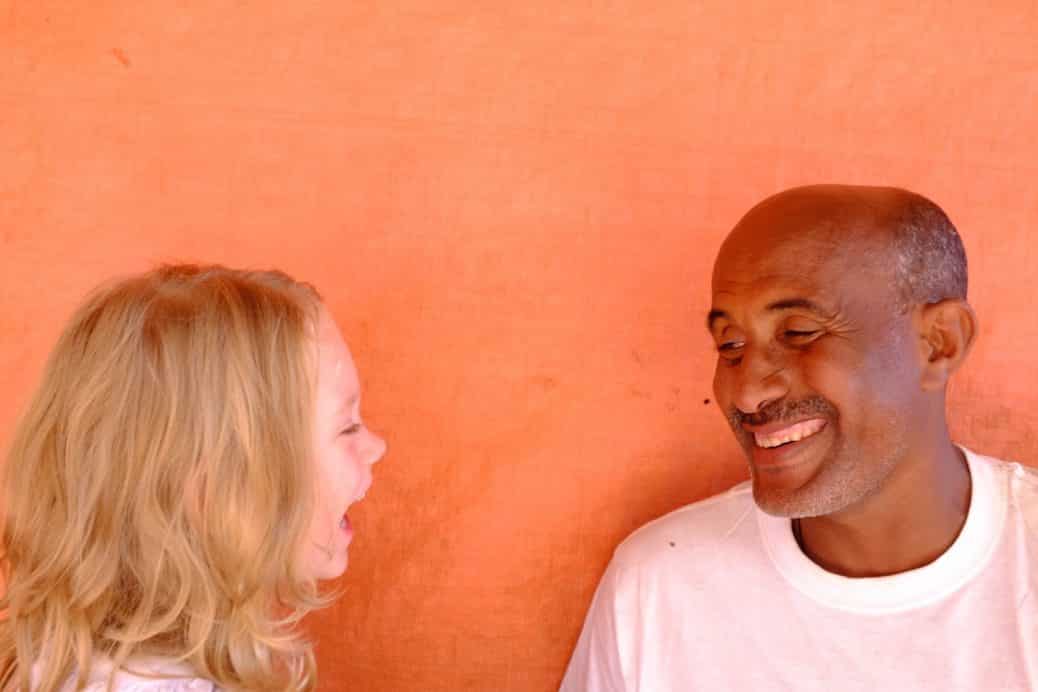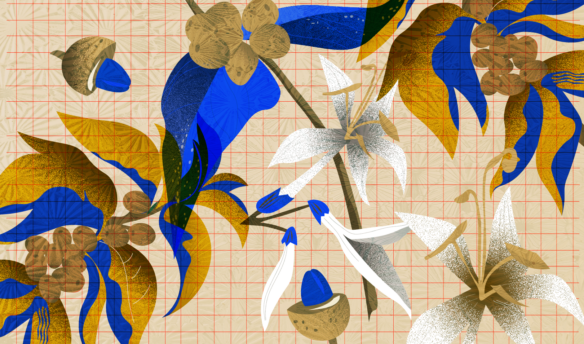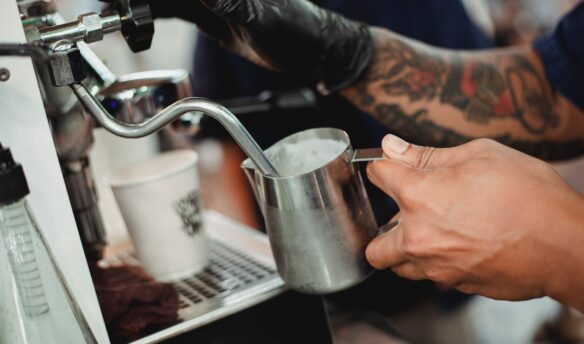Eire McIntyre and Abebeyahu Negash in Harar, Ethiopia. (Photo: Emily McIntyre.)
Since November 2016, Emily McIntyre has been living in Ethiopia with her husband and five-year-old daughter, Eire. As part of their work with Catalyst Coffee Consulting, the McIntyres have been traveling around the country to partner with producers, mills, and processing/export professionals. Their efforts are focused on education, deepening relationships, and moving toward truly progressive Ethiopian coffee. This post is the first in her upcoming series of weekly updates from the field.
[I] achieved the worst hangover of my life a couple months ago by eating fiyel tebs (goat barbecue) and drinking Habesha beer, and dancing with stomping, shoulder-wiggling Harari coffee farmers under the stars. The wrenching agony of driving on gravel and disintegrating asphalt roads for twelve hours the next day from Harar to Yirgacheffe was absolutely worth it.
The party culminated several days of hard work and had the hysteric release of a job well done. We had spent hours riding donkeys up Engule Mountain and hiking back down, running experiments on coffee farms, discussing ways to fund drying beds for farmers (ultimately we, and our partner company Dominion Trading, each chose to give $900 US or around 20,000 birr to fund what turned out to be around fifty drying beds), troubleshooting quality issues, grieving over eroded hillsides and lost coffee trees, and planning for the future.
A quiet, solid hill farmer named Abebeyahu Negash led it all, from organizing friends, neighbors, cousins, and brothers to hacking a brand-new road out of the mountainside two weeks before we arrived, to carrying my five-year-old daughter, Eire, on his back along the mountainside. With sure feet, he navigated the steep slopes of Mount Engule and showed us farm after farm of members of the Tiret Coffee Producer’s Cooperative Association (TCPCA), whose coffee we have the privilege of representing in the US and beyond. He led the dancing too. A multi-faceted man.
In 2014 we and Dominion Trading began to work with Abebeyahu, who had grown deeply discouraged by the fate of his coffee as it lost traceability through the Ethiopian Commodity Exchange (ECX). After many years of agricultural innovation (he introduced intercropping, nitrogen fixation, and various teff varieties to the Gololcha area), he was ready to tear up his coffee trees and plant beans. A third-generation coffee farmer, he reached out to us with samples and a request for assessment. In his coffee we saw the promise of the fabled Harar taste: chocolate, blueberries, fairy farts. The partnership was born, and in 2015 Abebeyahu and his fellow farmers achieved cooperative association status—without giving a single bribe (a huge feat in Ethiopia).
The coming year will be a good one for TCPCA and for us; the glowing pride of each farmer translates to a humility to learn about better picking and processing practices. Each of us are inspired to give our “best effort”, or Tiret.
—Emily McIntyre is a regular contributor to Fresh Cup, and the co-founder of Catalyst Coffee Consulting and Crema.co.















